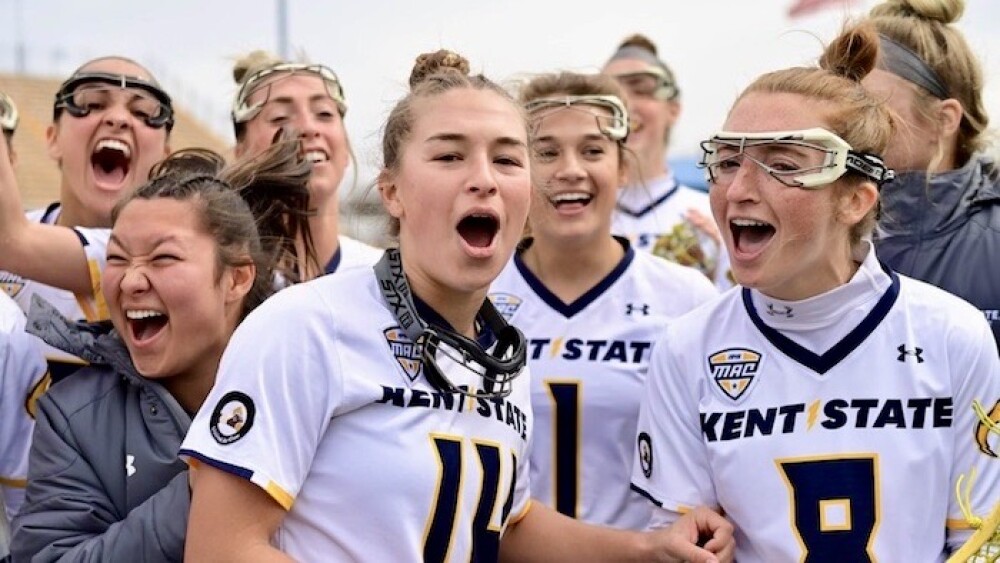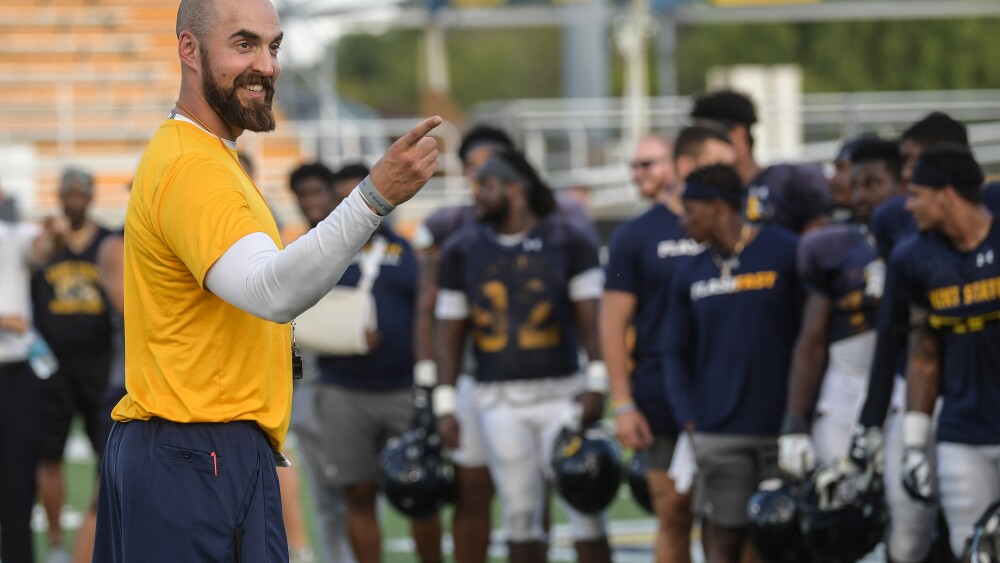Meet Dr. Guivernau!
Dr. Marta Guivernau is an assistant professor at the School of Teaching, Learning, and Curriculum Studies and the Coordinator of both the Bachelor of Science degree in Sport, Exercise, and Performance Psychology (SEPP) major and minor. She teaches classes on different topics in these programs including motivation, coaching, and principles and applications of sport psychology.
Read on for a short interview with Dr. Guivernau.
Tell us about your background in the field.
I completed my undergraduate degree in Psychology at the Autonomous University of Barcelona (Spain) and my graduate work (M.S. 1994; Ph. D. 1999) in Sport and Exercise Psychology at Purdue University. I joined the faculty at Kent State University in 2007 and currently teach Sport Psychology, Motivation in Sport and Exercise Psychology, and Principles and Applications in Sport and Exercise, among others. The goal of the SEPP programs is to help students combine their own passion for sports with an evidence-based approach to Psychology.
Prior to Kent State, I was a visiting professor at Kalamazoo College (Michigan), an adjunct faculty member at Michigan State, and a research associate to the Center for Sport, Character, and Community at the University of Notre Dame. I am also a certified mental performance consultant (CMPC) by the Association of Applied Sport Psychology (AASP).
My research and publications focus on understanding the conditions and influence of the environment on moral aspects and motivation and the impact of a positive atmosphere on an individual’s psychological and socio-emotional responses. Specifically, I examine how to create caring climates in sport and education that optimize the experience of all participants. In my work I have also explored the stressors that college athletes perceive and its impact on experience, well-being, and performance. I adopt an interdisciplinary approach in my research by integrating theories from the areas of developmental, social, sport psychology, and sociological principles and lifespan development.
What should students look for when choosing a program at Kent State?
This field has blossomed ever since COVID, and prior to this, there were limited programs available in the field. Sport psychology used to be pursued mainly at the graduate level and higher, which allowed students to come in with many different backgrounds of study, but what makes Kent State different is that we now offer a specific program in the field for undergraduate students. Being able to offer this program of study with online convenience as a major here at Kent sets us apart from other schools. This helps students stand out in the field and lays the groundwork for pursuing further education.
Are there a variety of benefits to this program in terms of career placement?
A bachelor’s degree in Sport, Exercise, and Performance Psychology prepares students for the growing academic field with essential understanding of knowledge and ethical practice in sport related fields. These include careers in coaching, strength training, nutrition, and with additional graduate work, students can pursue performance enhancement specialist jobs working with military, college and pro sports, and counseling careers. This major will also help you work towards a CMPC (Certified Mental Performance Consultant) certification upon completing additional graduate-level work as well.
How much real-world experience is used in your instruction/lessons?
My perspective is that I aim to teach the students the foundations of the field, teaching them how to apply the content so they actually use it. I use this method of applied sport psychology in all of my courses. One example of this is in my class on motivation in sport performance settings. Here, students learn about behavioral approaches to motivation and complete a project where they are asked to take the place of a physical therapist and complete a journal that asks them to apply shaping techniques to help rehabilitate a client. Another broader example from my class on principles and application of sport psychology involves how students are taught about current developments in the field and then asked to apply practical theory knowledge to case studies in a range of careers; involving training, consulting, coaching, and researching. I try to promote hands-on, real-world experience in all of my classroom environments.
What areas of practice are graduates expressing interest in?
Most students express interest in working directly with athletes. Another area that students gravitate towards is performance enhancement when they start learning about the field. Sport psychology is such a broad field, being the crossroad of psychology and sport, and it utilizes psychological theories and applies it to a sport framework in areas such as goal setting, imagery training, and cognitive strategies all used to promote well-being. Graduates can also use their knowledge to develop exercise initiation programs for adults, promote physical activities and wellness in communities, and teach life skills through interventions and counseling. This unlocks the door for students to work with specific populations, as well as different age groups. Another road graduates can take is using their knowledge to elevate diversity in sport working with elite athletes and recognizing ethical issues through incorporation of education into clinical practice.
Tell us about your favorite student program moment/story.
Overall, I love seeing my students engage with the material and apply it to different experiences in their life. Seeing their success in their fields outside of the classroom is very important to me.
Are you currently reading any books or listening to any podcasts related to the program?
Currently, I am reading Mind Gym- An Athlete’s Guide to Inner Excellence by Gary Mack and David Casstevens and In Pursuit of Excellence- How to Win in Sport and Life Through Mental Training by Terry Orlick.
Kent State University’s Online Bachelor of Science degree in Sport, Exercise, and Performance Psychology
The Bachelor of Science degree in Sport, Exercise, and Performance Psychology provides students, athletes, and those preparing for careers as coaches and sports practitioners with the knowledge of psychological theory and skills to enhance human behavior in the sport and exercise settings and the performing arts. The major differs from existing sport-related bachelor’s degree programs due to its focus on psychological processes related to sports performance, as opposed to existing programs that focus on pedagogical, physiological, or business aspects of sports performance.
The Sport, Exercise, and Performance Psychology major explores social-psychological concepts such as motivation, self-confidence, anxiety, or burnout, and how these concepts interact with the sports environment to influence athletes (e.g., losing focus under pressure or having self-doubts during a game) and performance. The program prepares students with essential knowledge of psychological aspects of sports performance and ethical practice to work in wide-ranging sport-related fields or to further their education in their chosen careers via graduate programs and mental performance certification by the Association of Applied Sport Psychology.
For more information on Kent State’s Online Bachelor of Science degree in Sport, Exercise, and Performance Psychology, visit https://onlinedegrees.kent.edu/degrees/bachelor-of-science-sport-exercise-performance-psychology









